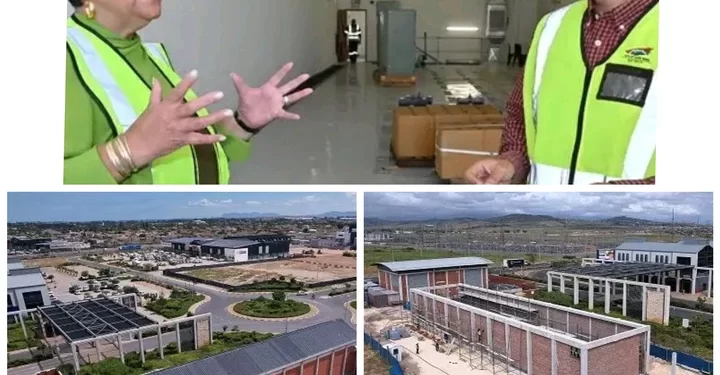As South Africa grapples with a nationwide energy crisis, the Democratic Alliance (DA)-led City of Cape Town is making significant strides in infrastructure development that could influence voters in the upcoming elections. The completion of a new 132 kV electrical switching station at Morgen Gronde, a project worth R145 million, highlights the party’s commitment to improving energy supply and addressing the constraints faced by surrounding areas such as Bellville and Oakdale.
The switching station, a critical component of the city’s energy infrastructure, aims to provide a reliable energy supply to Brackenfell residences, businesses, and major energy users. By investing in this project, the DA-run City of Cape Town is demonstrating its determination to rescue the metro from the energy crisis and ensure that all residents have access to a consistent and sufficient power supply.
With power outages and load shedding causing frustration and economic setbacks across the country, the DA’s focus on prioritizing critical energy infrastructure is likely to resonate with voters. The party’s proactive approach to tackling the energy crisis and its commitment to providing reliable energy supply throughout the metro may strengthen its appeal in the upcoming elections.
However, it is important to consider various factors beyond this specific infrastructure development when evaluating the DA’s suitability for leadership. While their efforts in the energy sector are commendable, it is essential to examine their broader policies and track record in areas such as governance, service delivery, and socio-economic development.
Proponents argue that the DA’s emphasis on clean governance, efficient service delivery, and job creation positions them as a viable alternative to address the country’s challenges. Critics, on the other hand, raise concerns about the party’s ability to address systemic inequalities and promote inclusive policies that benefit all South Africans.
As voters, it is crucial to assess political parties based on a holistic evaluation of their performance and proposed solutions rather than relying solely on individual projects. Infrastructure development, while important, is just one aspect of governance. Consideration should also be given to the party’s track record in education, healthcare, job creation, and poverty alleviation, among other critical areas.
Ultimately, the decision to vote for the DA or any other political party should be based on a thorough examination of their policies, values, and their ability to address the multifaceted challenges facing South Africa. While the progress made by the DA-run City of Cape Town in improving energy supply is commendable, voters should exercise their judgment by evaluating the party’s overall performance and vision for the future.
As the elections draw near, South Africans should engage in informed discussions, critically analyze party platforms, and assess which political organization offers the most comprehensive and sustainable solutions to uplift the nation and improve the lives of its citizens.






















